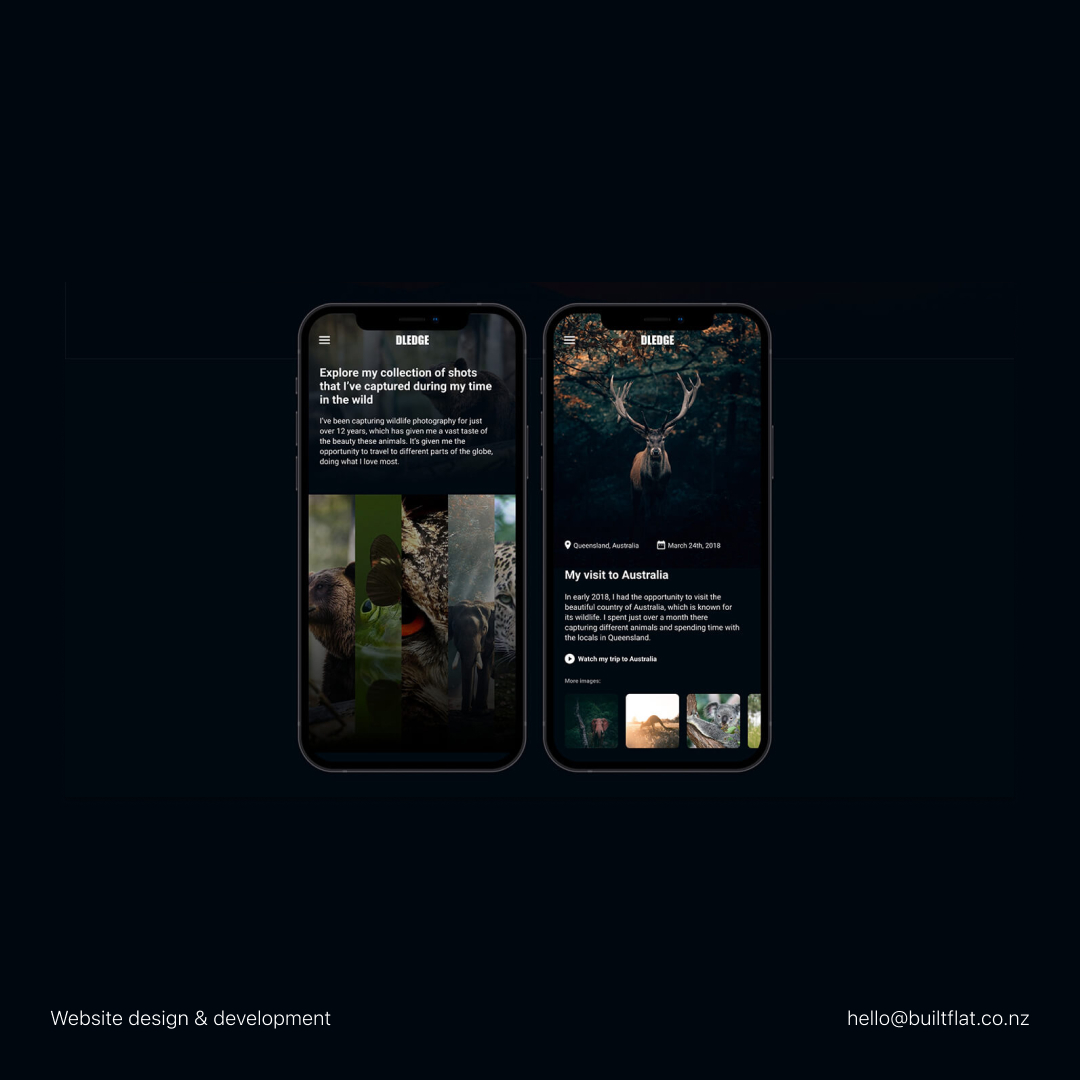SEO Trends for 2025: What You Need to Know and Implement
Discover the top SEO trends for 2025, from AI integration and voice search to structured data and E-A-T principles. Learn actionable strategies to stay ahead and boost your search rankings.

2025 is closer than you think and in the world of digital marketing a few months can bring serious monumental change to your website. With AI-driven enhancements, evolving user behaviour, and search engines becoming smarter, SEO isn’t just adapting – it’s transforming.
According to recent data, Google handles over 8.5 billion searches per day. Staying ahead of SEO trends is crucial to remain visible in this dynamic landscape. Below we’ll dive into what’s shaping SEO in 2025 and how you can implement these trends to stay competitive.
The Role of AI Tools in Search Engine Optimisation
How AI Is Transforming SEO Strategies
Artificial intelligence is evolving the way search engines operate, influencing everything from search results to content creation. This is because AI algorithms have the ability to process huge amounts of data quickly, which helps search engines (Like Google) deliver more relevant results to users. This evolution means that websites must adapt their content to meet these enhanced standards.
Why is AI Important for The Future of SEO?
AI’s integration into search engines allows them to better understand user intent, making content that accurately matches searcher needs more likely to rank higher. Leveraging AI in your strategy helps ensure your content remains competitive as algorithms become more sophisticated.
Action Plan:
- Leverage AI-Powered SEO Tools: Use AI-driven platforms for keyword research, competitive analysis, and predictive analytics.
- Create Content for User Intent: Analyse search intent closely and create content that answers specific questions or provides solutions.
- Optimise Metadata Using AI Insights: Use AI to analyse successful metadata structures and apply similar strategies to your own content.
- Integrate AI Chatbots: Enhance user experience by integrating AI chatbots that can answer common user queries in real-time, improving engagement metrics that influence SEO.
- AI In Content Management Systems: Depending on what CMS you’re using for your website, you may be able to add in AI plugins that can help with your search engine marketing and SEO work.
User Experience (UX) Matters More Than Ever
Why does Google favour UX?
With the recent November 2024 Core Algorithm Update, Google reaffirmed its commitment to user-centric content and experiences. Metrics such as page load time, mobile responsiveness, and interaction are essential to providing a seamless, user friendly journey.
Why is UX Important?
Google’s focus on UX means that even high-quality content won’t perform well if it has slow load times or poor navigation. Positive user experiences encourage more time on site and lower bounce rates. Which are factors that search engines consider when ranking sites to your target audience!
Action Plan:
- Optimise for Mobile: Ensure that your site is responsive on all devices. Test your design using tools like Google’s Mobile-Friendly Test.
- Speed Up Your Website: Compressing images and enable browser caching can help. As well as using a hosting provider with a Content Delivery Network (CDN) to improve load times.
- Enhance Navigation: Implement an intuitive, clear menu structure, making sure users can easily find what they’re looking for.
- Engage with Interactive Elements: Add elements like clickable FAQs, polls, and surveys that encourage user interaction. The aim here is to improve time-on-page metrics, lowering bounce rates.

Voice Search: The New Frontier
Optimising for Voice Search
Voice search is becoming the norm, not the exception. People now use voice assistants such as Alexa, Siri, and Google Assistant for everything. From quick searches to detailed questions, usually in a conversational format to improve their search experiences.
Trust me on this! You ask my 8 year old sister a question and she’ll immediately go “Hey Alexa..”
Why Should I Optimise For Voice Search?
Voice searches tend to use more natural, conversational language compared to typed searches. This means websites that optimise for voice search can capture more traffic from these growing search methods.
Action Plan:
- Focus on Conversational Keywords: Include phrases that mimic spoken language, such as long-tail keywords and full-sentence questions. Think about what your users are using for search terms.
- Implement FAQ Sections: FAQs naturally align with the way people phrase voice queries. Start structuring your frequently asked questions around “how,” “what,” and “why” questions.
- Use Structured Data: Implement structured data markup. This makes it easier for search engines to pull direct answers from your content for voice results.
- Target Local SEO for Voice: Optimise your site for local keywords like “near me” searches since voice search is often used for local queries.
E-A-T and Trustworthiness
What Is E-A-T?
E-A-T stands for Expertise, Authoritativeness, and Trustworthiness, which are criteria Google uses to evaluate the credibility of content. This is especially true in sensitive niches like health, finance, and legal advice.
Why is E-A-T Important For SEO?
Content that lacks credibility can lead to reduced trust from both search engines and users. Google wants to ensure that it’s providing users with the most trustworthy, expert-driven content available.
Action Plan:
- Show Author Credentials: Include author bios with professional qualifications on your posts to establish authority.
- Link to Authoritative Sources: Back up your statements with data from reputable publications or studies.
- Keep Content Updated: Regularly update your content to ensure it reflects the latest information.
- Secure Your Website: Use HTTPS and display trust indicators, like customer reviews and trust badges, to show users your site is safe.
- Make sure your web design is up to date: User’s pass judgement on website designs within a few seconds of landing on your site. Make sure your design is fresh, optimised, and updated regularly to keep your brands trust high!

Structured Data and Schema Markup
Why Schema Is Essential?
Structured data acts like a map for search engines, helping them understand your content’s context more effectively. The November 2024 update, along with general SEO advancements, has highlighted the significance of schema markup for better visibility.
Why Is Schema Markup Important?
Using schema in your web development can increase the chances of your content appearing in rich snippets and other SERP features. Leading to higher click-through rates from the search engine results page on your website!
Action Plan:
- Add Schema Markup: Use tools like Schema.org to implement structured data for different content types. These add tags to pages such as articles, products, and reviews through website development.
- Validate Your Markup: Try out the Google Rich Results Test to make sure your schema markup is correctly implemented.
- Implement FAQ Schema: This can help your FAQs appear directly on search result pages, driving more clicks.
- Track Performance: Monitor how your schema markup impacts visibility and CTR using Google Search Console.
The Rise of Visual and Video Content
Enhancing Content with Multimedia
Visual content – such as infographics, images, and videos – boosts user engagement and encourages longer site visits. These are both positive signals to search engines that your website should rank higher.
Why Is Visual And Video Content Important For Website SEO?
Incorporating multimedia helps capture and hold user attention, reducing bounce rates and increasing the chances of shares and backlinks. All are critical for SEO.
Action Plan:
- Create Engaging Video Content: Start by embedding videos that explain complex topics or showcase products.
- Optimise Image Alt Text: Use descriptive alt text that incorporates relevant keywords.
- Transcribe Your Videos: Add transcripts to your video content to improve accessibility and searchability.
- Compress Media Files: Ensure fast load times by compressing your images and videos without sacrificing quality.
Local SEO: Your Key to Community Connection
The Power of Local Search
Personalised and location-based search results make local SEO crucial for businesses looking to attract nearby customers. With AI enhancements, local search results are now more accurate and relevant.
Why Do I Need Local Search Optimisation For My Site?
Local SEO can drive significant foot traffic to brick-and-mortar businesses and increase engagement for locally focused websites. This trend is especially useful for smaller businesses looking to compete with larger companies.
Action Plan:
- Claim Your Google My Business Profile: Ensure your business information is correct and up-to-date.
- Encourage Reviews: Positive reviews can boost your ranking in local search results.
- Use Location-Specific Keywords: Implement keywords that reflect your region or city in your content. For example, Builtflat delivers website design & development to Auckland, New Zealand!
- Engage in Local Link Building: Partner with local businesses and events for link-building opportunities. External links signal local relevance to search engines.

Sustainability in SEO
A New Perspective on Ethical SEO
Consumers are increasingly drawn to companies that show transparency and uphold sustainable practices. Highlighting your brand’s commitment to ethical practices can not only improve trust but also increase engagement.
Why Is Sustainable SEO Important?
Google and other search engines are beginning to consider social factors as part of their ranking criteria. Sustainability-focused content is setting businesses apart in competitive industries, especially in New Zealand.
Action Plan:
- Highlight Eco-Friendly Initiatives: Create dedicated pages or blog posts that discuss your sustainability efforts.
- Incorporate Sustainable Practices into Content: Mention ethical sourcing, eco-friendly packaging, or green initiatives where applicable.
- Promote Social Responsibility: Feature partnerships or community projects that align with your company values.
- Show Proof: Use certifications or official partnerships to prove your commitment to sustainability.
Conclusion
The SEO landscape in 2025 is set to be more complex and competitive than ever. Adapting to these emerging trends isn’t just an option; it’s a necessity for maintaining and boosting your online visibility. From harnessing the power of AI to optimising for voice search, structured data, and local SEO, understanding and implementing these strategies can make the difference between a high-ranking website and one that gets lost in the shuffle.
Prioritising user experience, leveraging multimedia, and building trust through E-A-T principles are also crucial steps to ensure your site stays ahead of the curve. Moreover, incorporating sustainability into your brand’s message can resonate with a socially conscious audience and set you apart from competitors.
Remember, SEO isn’t a one-time project—it’s an ongoing process that evolves alongside search engines and user expectations. Taking proactive measures today can position your website for long-term success as we move into 2025 and beyond.
At Builtflat, we’re all about guiding businesses like yours through these SEO shifts with tailored strategies and a relaxed approach that works for you. Whether you need help revamping your website, fine-tuning your SEO, or staying on top of algorithm changes, we’re here to lend a hand. Ready to future-proof your online presence with SEO professionals? Let’s talk. Want to know more? Check out our SEO site page!
Frequently Asked Questions
Below are some frequently asked questions relating to this blog post.